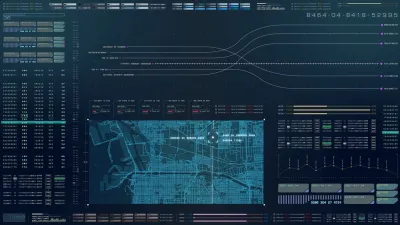Ben Hecht contemplates the currency of the digital age and how it will transform the cities we live in.
Ours is a world driven by data. Every step we take, whether it's the swipe of a club card at the supermarket or a simple Google search, leaves a trail of information about what we like and how we behave. Businesses and institutions have long been harvesting this data to better serve their clientele, ushering in a new model for making decisions and relating to the world. Dubbed Big Data, this trend has major implications for the public sphere as well, Hecht suggests:
- Informed Decisionmaking: "Data collection systems have evolved rapidly over the last decade with more sophisticated and varied sources for capturing information including 311 calls, educational performance, and health care," allowing for a more responsive government.
- Civic Change: As public agencies make more and more data publicly available, citizens can better engage in the democratic process, "improving civic life generally, from real-time bus schedules to virtual land use planning."
- Behavior Prediction: "Education leaders [in North Carolina] are using high-tech data analytics... to predict who might be at risk of falling off track and even failing to graduate high school." In addition, police forces may soon analyze crime statistics "to better understand where police need to be and when to provide the greatest benefit to communities."
According to Hecht, "How we harness Big Data for common good will be a big question for the next decade."
FULL STORY: The Promise of Big Data for Cities

Planetizen Federal Action Tracker
A weekly monitor of how Trump’s orders and actions are impacting planners and planning in America.

Maui's Vacation Rental Debate Turns Ugly
Verbal attacks, misinformation campaigns and fistfights plague a high-stakes debate to convert thousands of vacation rentals into long-term housing.

San Francisco Suspends Traffic Calming Amidst Record Deaths
Citing “a challenging fiscal landscape,” the city will cease the program on the heels of 42 traffic deaths, including 24 pedestrians.

Amtrak Rolls Out New Orleans to Alabama “Mardi Gras” Train
The new service will operate morning and evening departures between Mobile and New Orleans.

The Subversive Car-Free Guide to Trump's Great American Road Trip
Car-free ways to access Chicagoland’s best tourist attractions.

San Antonio and Austin are Fusing Into one Massive Megaregion
The region spanning the two central Texas cities is growing fast, posing challenges for local infrastructure and water supplies.
Urban Design for Planners 1: Software Tools
This six-course series explores essential urban design concepts using open source software and equips planners with the tools they need to participate fully in the urban design process.
Planning for Universal Design
Learn the tools for implementing Universal Design in planning regulations.
Heyer Gruel & Associates PA
JM Goldson LLC
Custer County Colorado
City of Camden Redevelopment Agency
City of Astoria
Transportation Research & Education Center (TREC) at Portland State University
Jefferson Parish Government
Camden Redevelopment Agency
City of Claremont




























